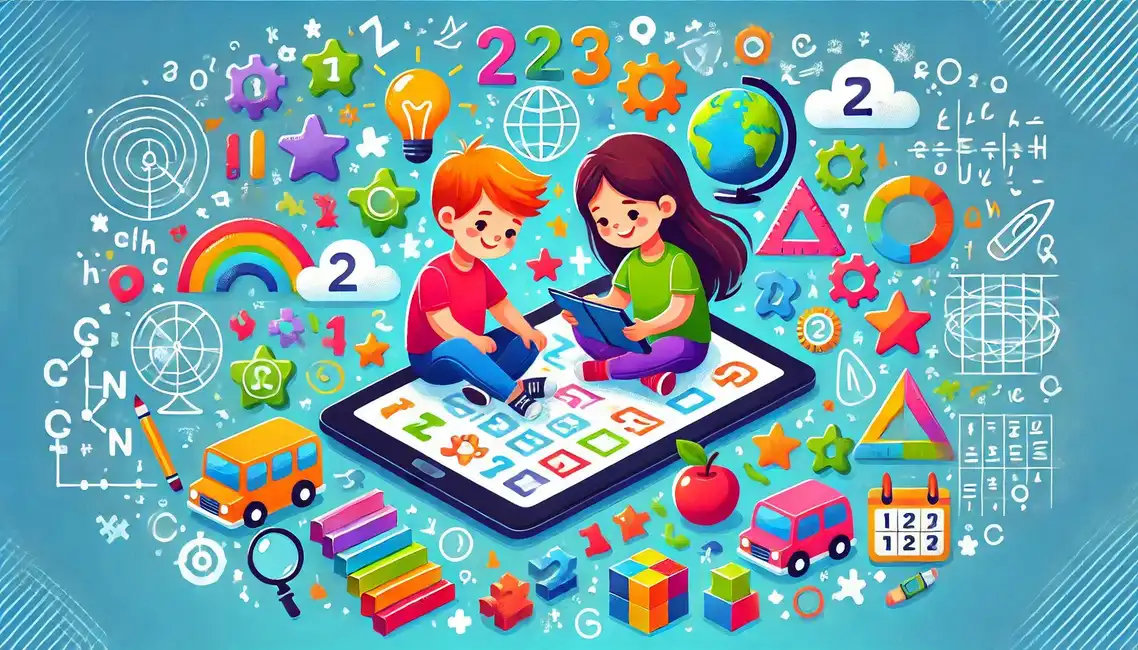Learning doesn’t have to be boring! Thanks to innovative educational games, kids and adults alike can gain knowledge while having fun. Whether you want to improve problem-solving skills, learn math, or explore science, these games bring the classroom to life in creative ways. Here’s a detailed look at the best educational games for curious minds.
1. Minecraft: Education Edition – Creativity Meets Learning
Minecraft isn’t just about building and surviving; the Education Edition takes it to the next level.
- Why It’s Great: Teachers and students can use it to explore concepts like geometry, chemistry, and even history through interactive gameplay.
- Key Feature: The ability to create custom worlds tailored to specific lessons, making learning immersive and hands-on.
- Pro Tip: Use the Chemistry Lab feature to create compounds and learn chemical reactions.
2. Kahoot! – Making Quizzes Fun
Kahoot! is a popular game-based learning platform where quizzes turn into exciting competitions.
- Perfect For: Teachers looking to engage students or families wanting a fun trivia night.
- Why It Works: Its colorful interface and competitive nature keep players engaged while reinforcing knowledge.
- Highlight Moment: Custom quizzes let players focus on specific topics, from vocabulary to world geography.
3. Duolingo – Master a New Language
Learning a new language has never been easier than with Duolingo.
- Why It’s Effective: Bite-sized lessons gamify the learning process, rewarding correct answers with points and unlocking levels.
- Best For: Kids and adults wanting to pick up languages like Spanish, French, or Japanese.
- Notable Feature: Daily streaks and leaderboards keep learners motivated to practice regularly.
4. Prodigy Math Game – Turning Numbers into an Adventure
Prodigy transforms math practice into a fantasy RPG where solving problems helps defeat enemies and earn rewards.
- Why Kids Love It: Its fun characters and adventurous storyline make math challenges exciting.
- Tailored Learning: The game adapts to the player’s skill level, ensuring just the right amount of challenge.
- Parent Perks: Progress reports let parents track learning milestones.
5. BrainPOP – Animation-Based Learning
For visual learners, BrainPOP offers animated videos and interactive games on topics ranging from science to social studies.
- Why It’s Unique: The engaging animations simplify complex concepts, making them easy to understand.
- Best Feature: The “GameUp” section, where kids can apply what they’ve learned through mini-games.
- Fun Fact: BrainPOP is aligned with educational standards, so it’s perfect for classroom use.
6. TypingClub – Master the Keyboard
Learning to type is an essential skill, and TypingClub makes it enjoyable with interactive lessons and challenges.
- Why It’s Important: Typing fluency can improve productivity and confidence in school or work.
- Key Features: Animated stories and badges keep learners motivated as they progress.
- Great For: Beginners and advanced typists alike, with lessons tailored to all skill levels.
7. Little Alchemy 2 – Sparking Creativity Through Science
Little Alchemy 2 teaches players how to combine elements to create new items.
- Why It’s Fun: It encourages creative thinking and experimentation while subtly teaching scientific concepts.
- Educational Value: Players learn the relationships between elements, such as how water and fire create steam.
- Pro Tip: Challenge yourself to discover all 720 combinations!
8. CodeCombat – Learn Programming Through Play
CodeCombat is a game designed to teach coding skills in an interactive way.
- Why It’s Effective: Players use real programming languages like Python or JavaScript to navigate characters through challenges.
- Best For: Kids and teens wanting to learn coding in a fun, non-intimidating environment.
- Standout Feature: Multiplayer battles where players’ code determines the outcome of fights.
9. Adventure Academy – A Virtual Learning World
Designed for kids aged 8-13, Adventure Academy combines exploration with education.
- Why It’s Engaging: Players explore a virtual academy, completing quests that teach reading, math, and science.
- Highlight: The multiplayer aspect lets kids connect and collaborate with friends.
- Bonus: Frequent updates add new quests and challenges to keep the experience fresh.
10. Toca Lab: Elements – A Chemistry Playground
Toca Lab: Elements introduces kids to the periodic table in a playful, hands-on way.
- Why It’s Great: The interactive setup allows kids to experiment with elements, discovering their properties in a safe virtual lab.
- Perfect Age Group: Younger learners curious about science.
- Fun Feature: Characters represent each element, adding personality to the learning experience.
Why Educational Games Are Important
Educational games bring several benefits that make them invaluable for learners of all ages:
- Engagement: Games are inherently fun, which keeps players motivated to learn.
- Adaptability: Many games adjust difficulty levels based on the player’s progress, ensuring personalized learning.
- Critical Thinking: Problem-solving and strategy games encourage logical thinking and creativity.
- Accessibility: With many games available on mobile devices and computers, learning is just a click away.
Tips for Choosing the Right Educational Game
- Identify the Goal: Determine what you or your child want to learn, whether it’s math, language, or coding.
- Check Reviews: Look for games with positive reviews from parents and educators.
- Ensure Compatibility: Make sure the game works on your device.
- Trial Periods: Many games offer free trials—use them to see if the game fits your needs.
